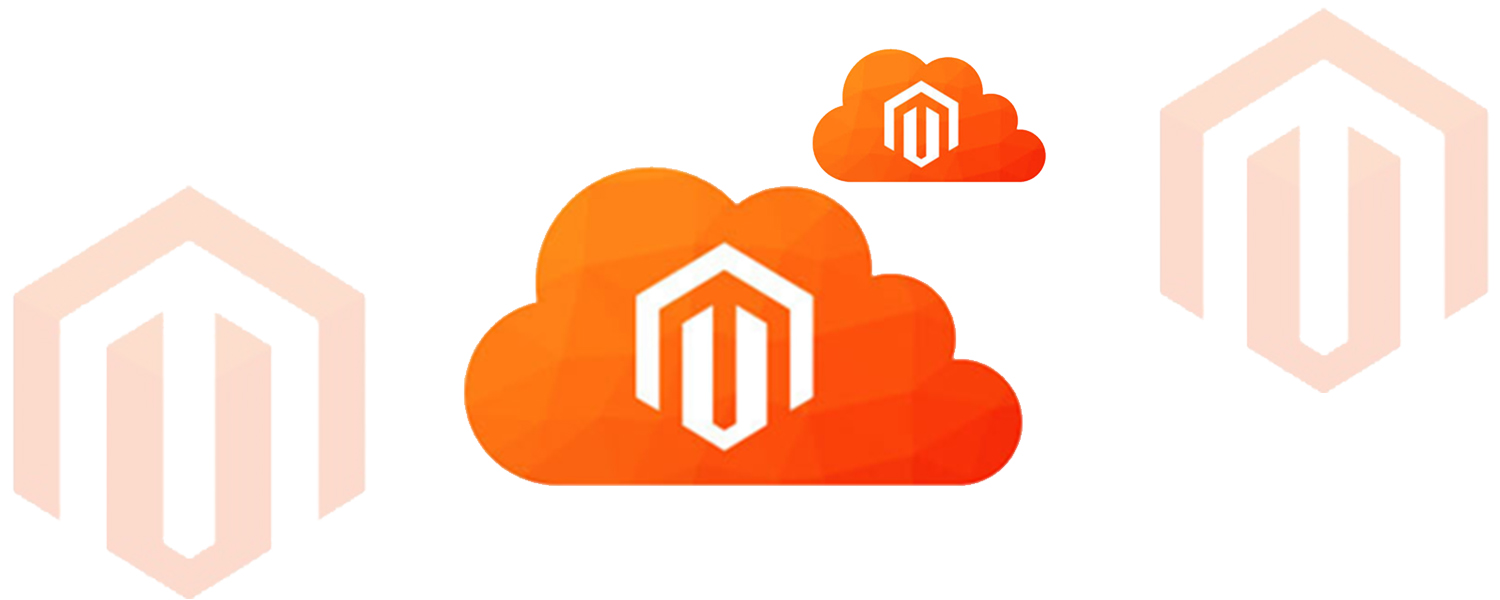What is Magento Commerce Cloud?
One of the most popular PaaS (Platforms as a service) for eCommerce is Magento Commerce Cloud (Adobe Commerce Cloud). Both PaaS and SaaS are cloud service paradigms. Rather than restricting customers’ access to server-level parameters, PaaS allows them to utilize the tools supplied by PaaS businesses to access the source code and construct their software.
A managed and automated Magento Commerce hosting platform, Magento Commerce Cloud was previously known as Magento Enterprise Cloud Edition. Magento Commerce Cloud is perfect for large stores with extensive tech stacks and marketing goals.
Who is Magento Commerce Right for?
Adobe Commerce is advertised as a product that can assist both B2B and B2C companies. To those companies who want extensive customization or who currently use several Adobe products, Adobe Commerce Cloud offers some distinct benefits due to its hosted website’s many eCommerce features and its seamless integration with the Adobe Experience Manager.
Adobe Commerce Cloud, however, isn’t a good fit for every merchant. Adobe sees itself as an enterprise product, whereas Magento, especially the Open Source version, may be more suitable for smaller businesses. Adobe Commerce Cloud’s high cost and extensive development labor may deter lower to mid-market enterprises from implementing it. The cloud-based SaaS platform BigCommerce may be a better option for these businesses.
Larger enterprises have distinct needs. Adobe Commerce is a brilliant solution, but there are others. To find out more, check out our enterprise eCommerce platform comparison.
Layers of Magento Commerce Cloud
In order to ensure that Magento Commerce Cloud is dependable, scalable, and secure, it has five distinct levels of functionality.
Cloud Infrastructure
Magento’s cloud infrastructure is compatible with cloud servers from Amazon Web Services and Microsoft Azure. There are high-performance servers for data storage, networking, and computing available to meet the needs of even the most demanding enterprise-level merchants.
Platform-as-a-Service (PaaS)
Magento’s code management, development, and deployment are made possible by combining Git and Composer. To keep track of the software’s dependencies, upgrade packages, and explain how they work together, the platform uses Composer. When it comes to Magento Commerce Cloud website development, Git takes care of everything.
Not sure about the difference between PaaS and SaaS and Open Source? Read our guide to the difference between SaaS vs Open Source eCommerce platforms.
Commerce Features
The core of all stores is the Magento Commerce platform, which provides all eCommerce website functions. The open-source version lacks advanced business analytics and B2B functionality.
Performance-enhancing Tools
Magento Commerce Cloud comes with New Relic, a tool that enables developers and system administrators to monitor, manage, and debug the applications and infrastructure of the Magento platform. New Relic for application performance management is a software analytics platform that can track and analyze store transactions, database queries, and application dependencies.
Edge cloud platform
Fastly is used by all Magento Commerce Cloud stores to provide secure and efficient delivery of content to customers. Fastly is a content delivery network, web application firewall, and picture optimizer all in one.
Magento Commerce Cloud features
The Cloud-hosted Magento version can scale quickly and reliably. To ensure optimal efficiency, Magento Commerce Cloud runs on AWS (or Microsoft Azure for Pro projects). Massive traffic surges can affect online retailers, but Magento is aware of this and can easily handle it.
Ease of use
Many sellers find it challenging to construct an online store using Magento Open Source since most of them lack previous website development skills. Magento Commerce Cloud is different.
It’s easy to customize your site’s homepage using Page Builder, a drag-and-drop tool specific to Magento Cloud customers.
Full-Featured Administrative Tools
To manage complex projects, Magento Commerce Cloud enhances the administrative suite of Magento Commerce. Features include:
The B2B (business-to-business) module includes the following tools: quotation, corporate accounts, rapid checkout choices, credit lines, customer-specific payment methods, requisition lists, quick order, customer-specific pricing and catalogs, purchasing limitations, and more.
- Page Builder allows users to design custom product pages and better organize their material.
- ElasticSearch manages search queries for big catalogs in several languages.
- Customer segmentation allows you to target clients based on their address, browsing history, and shopping cart contents.
- Content Staging allows a retailer to plan changes to CMS Pages or Blocks.
- The Instant Purchase tool saves a customer’s shipping and payment information to speed up future checkouts.
- Visual Merchandiser aesthetically arranges the products in your categories by the most popular items, colors, sizes, and discounts.
Analytics
Data is becoming increasingly vital for eCommerce shops to track their achievements better and make informed business choices. Choosing an eCommerce platform that includes data analytics capabilities might be an important element for your company.
Adobe Commerce Cloud
The fact that Adobe Analytics is integrated with Adobe Commerce Cloud makes it a valuable tool for organizations looking to better understand and analyze their data.
Benefits of Magento Cloud Core
Magento Commerce Cloud consists of five functional levels, each of which provides a distinct benefit to your business.
Magento Commerce Cloud has five tiers of functionality.
- The cloud hosting is provided by Amazon Web Services or Microsoft Azure.
- Git and Composer make it easy to develop a PaaS system.
- B2B and Business Intelligence modules help Magento analyze and report store data.
- New Relic APM gathers, displays, and analyzes data to enhance project application interactions.
- Fastly offers CDN, security, and image enhancement solutions
Effortless and Quick Production Deployment
Adding projects to Magento Cloud was initially difficult due to the necessity for three different git repositories for integration, staging, and production.
For the installation to work properly, the development team had to transfer to a new production repository after the integration environment had been deployed. It also took time away from both developers and merchants because the settings for the staging and production environments had to be manually changed.
This enabled Magento to create a staging/production git repository and merge all environments into one Git tree, simplifying the deployment process.
Enhancements to page loading speed
Importing high-quality images and videos of your products has its drawbacks. Image quality frequently contributes to sluggish page load times.
To address this issue, Magento released an image optimizer powered by Fastly for Magento Commerce Cloud only. Fastly Image Optimization allows businesses to do deep image optimization without impacting the origin server or image sizes or quality.
Reachable scalability and adaptability
As your eCommerce shop grows, Magento Commerce Cloud takes care of scalability. Magento Commerce Cloud, like its elder siblings Magento Commerce and Open Source, is an open-source platform that can be readily adapted to suit your needs. However, it has sophisticated scalability capabilities like order archiving, multiple master servers, scalable backend product administration, and MySQL customer support service.
Increased Security
Either you or the platform provider can comply with the most up-to-date Magento security standards. Magento Commerce Cloud has robust security features that relieve merchants of operational responsibility. As a result of the additional layer of protection provided by the Web Application Firewall (WAF), your shop is PCI compliant and is protected against malware inputs and other security risks.
Enhanced Efficiency and Expanded Memory
Magento previously utilized the C3 server family, which was fine at the time but is now obsolete. After a successful transition in 2018, Magento migrated all of its customers from the C3 to the M4 family of servers. With the switch to M4 cloud servers, Magento merchants got a 100% increase in memory storage and the ability to scale and grow their product catalogs without slowing down their stores.
Ownership and Operation Costs
Many small businesses believe that the cheaper total cost of ownership offered by Open Source software is an attractive option. If you don’t want to pay for software or subscriptions, an Open Source Edition is an excellent choice.
The total cost of ownership (TCO) is a lot more than the cost of your program. Hosting, development, design, maintenance, customer service, security updates, and more are all part of it.
We have a full guide about costs here: How Much Does Magento Cost?
Faster Time to Market
Another advantage Commerce Cloud provides is a fast time to market. Automated installations in Magento Cloud expedite marketing operations. A six-month implementation period for a fully running eCommerce business is now possible with a cloud solution.
Magento Cloud CLI
The Magento Cloud CLI is a command-line interface for Magento Commerce Cloud that can be installed on a local workstation to use Project Web Interface features. It offers developers and system administrators a local administration interface for routine and automatic activities.
Cloud projects are managed and deployed by using the ece-tools package provided by Magento Commerce Cloud. You can deploy Magento Commerce Cloud to docker environments, manage crons, and apply custom patches and hotfixes more quickly and easily.
Is Adobe Commerce Cloud Affordable?
There’s no one transparent price for these commerce clouds, but here are some insights.
You will need a developer, an in-house IT staff, and/or an agency to construct and run an Adobe Commerce Cloud shop. Magento (and, by extension, Adobe Commerce Cloud) has a very complicated setup, which makes it expensive to build. An enterprise-level store may cost upwards of six figures to construct and can quickly grow in complexity due to the addition of advanced features, extensions, and integrations.
That doesn’t include the license fees for Adobe’s software, which you’ll have to pay separately. The intricacy and scale of your company will have an impact on this.
Magento Commerce Cloud Plans
Magento Commerce Cloud has two plans: Starter and Pro. Both options offer end-to-end testing and continuous integration by deploying databases, web servers, and cache servers across various environments. The architecture of each plan drives the development and deployment process.
Core features
Both plans include all Magento 2 core features. They have the PayPal Onboarding tool and Magento Business Intelligence, making data analysis and business health monitoring easier.
The Pro plan includes a B2B module that automates quotation management, pricing negotiation, buying roles administration, and complicated organizational structures. Those on the Starter plan can, however, add the B2B features at an additional expense.
Deployment and infrastructure
Both versions provide unlimited user cloud integration tools. They also include Fastly CDN, Fastly image optimization, and production-level security via a web application firewall.
Both subscriptions include New Relic for app performance management. However, the Pro plan current version includes New Relic Infrastructure and log management. The Pro plan also includes infrastructure as a service for production and staging environments through dedicated virtual infrastructure.
HA infrastructure
The Magento Commerce Cloud Pro package has a three-server high availability architecture ideal for demanding companies.
Custom hardware
The Pro package includes specialized hardware for infrastructure support. It delivers enterprise-class performance, dependability, and availability.
Support
Both subscriptions include 24/7 cloud infrastructure and application monitoring and email support. The Magento Development Company can help you with mandatory tasks for your eCommerce stores.
Those on the Pro plan get a personal tech advisor. A technical account manager assists merchants from the start of their subscription until the launch of their website.
Why Should You Choose Magento Cloud?
Magento Commerce Cloud has a wide range of customizable capabilities for eCommerce businesses. Choose Magento Cloud Edition if you want to:
- keep up with the latest marketing trends, innovate, and provide your customers with an omnichannel shopping experience
- track sales, customer behavior, and web performance
- deploy quickly and easily
Magento Commerce Cloud Alternatives
BigCommerce VS Magento Commerce Cloud
Google Cloud hosts BigCommerce. BigCommerce’s level of customizability is limited compared to Magento’s. In comparison to BigCommerce’s standard security patches, Commerce Cloud Edition has a better level of data protection thanks to technologies like Fastly.
Because of its scalability and security, the Magento Commerce Cloud has definite advantages for large organizations to use.
But in the battle of BigCommerce vs Magento, they are both neck and neck. BigCommerce offers more built-in features than Magento. While Magento’s extra features are more adjustable, BigCommerce comes with more convenient features. Both have enterprise-grade performance, and everything an internet store needs!
Shopify Plus VS Magento Commerce Cloud
Cloud-based platform Shopify Plus takes care of managing your servers, improving them for speed, and implementing security fixes on your behalf. There is a downside to Shopify Plus, though, since you do not have access to the source code.
Salesforce Commerce Cloud VS Magento Commerce Cloud
Magento Cloud’s highly configurable solution serves both B2B and B2C businesses and offers various tools and capabilities. SaaS-based Salesforce Commerce Cloud is a multi-tenant platform with complete management.
Wrap Up
Magento Commerce Cloud is an excellent solution for large businesses because of its enterprise-level features and highly scalable infrastructure, allowing for continuous development and deployment.
Have more questions? Get a FREE Magento Commerce Cloud Consultation today.





